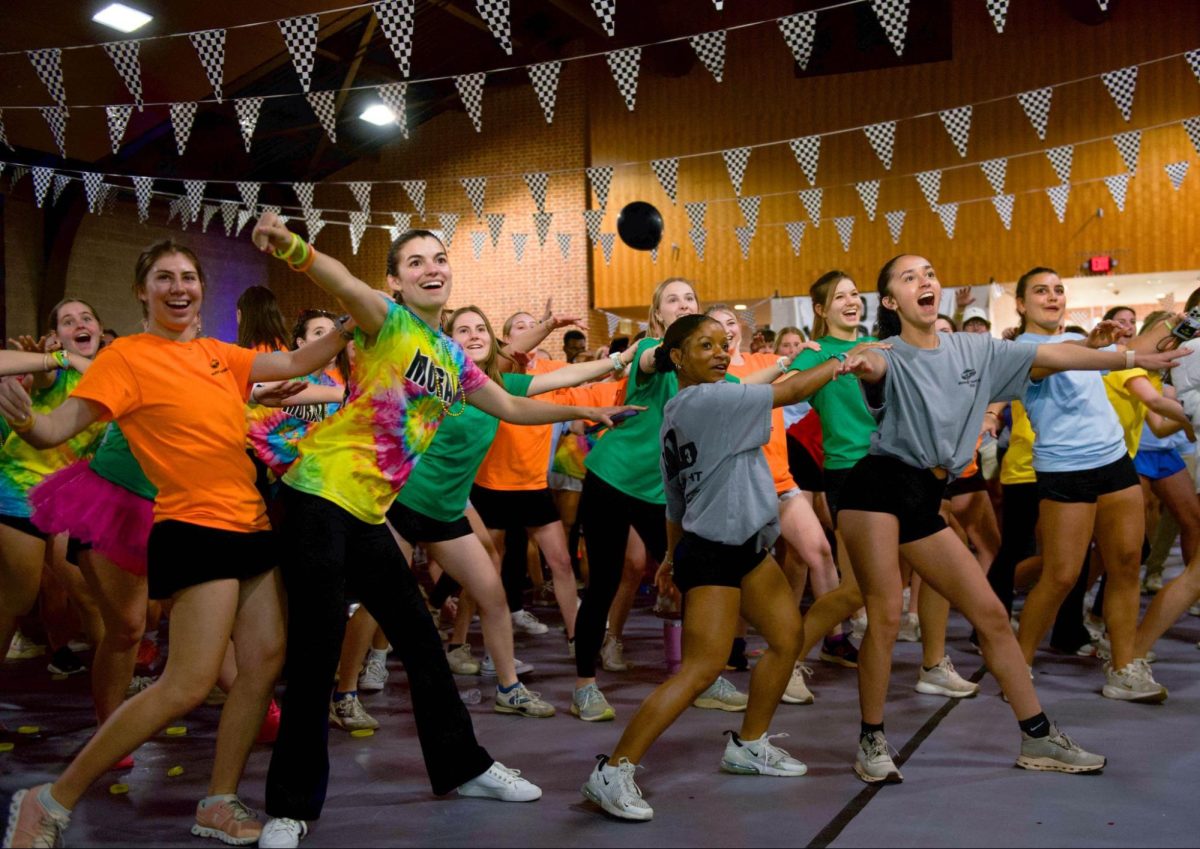If I see one more LinkedIn post beginning with the words “I’m excited to announce that this summer […],” I’m going to start sending my therapy bill to their headquarters.
Generation Z is the “most stressed” generation, reporting higher stress levels and poorer mental health than their elders. Many experts attribute increased anxiety and depression to financial uncertainty and isolation, but I think LinkedIn is to blame.
I know exactly what is causing my stress: an app where I endlessly compare myself to others’ professional successes. However, that doesn’t stop the reality that I need an app to meet professionals in a career field, and, in the process, reach the elusive 500+ connections mark. I’m sure my fellow LinkedIn warriors can relate. You might as well follow my LinkedIn while you’re at it.
My love/hate relationship with LinkedIn and internship culture is humorous, yet paradoxical. The discouragement I feel in my internship search comes from the fact that there’s always a more competitive applicant. So, I have to keep being competitive to succeed in this dog-eats-dog world.
Or do I?
I started this internship cycle firmly believing that if everybody else is so accomplished, then I needed to become the most competitive applicant to follow suit. Short of curing cancer or becoming the first female president, I tried everything to succeed in the internship hunt. I applied to around 40 internships, set up networking calls, wrote catered resumes and cover letters and made a color-coded Google Sheet to organize dates and documents.
I even ran my resume to an office’s doorstep. Who knew paper resumes still exist?
I did everything right by the books, yet I was rejected from most internships I applied for.
At the end of the day, passion and work ethic only got me so far. As rejection email after rejection email piled in my inbox, I couldn’t shake the feeling that I didn’t measure up in the real world.
Then, I realized I was measuring my summers with the wrong ruler.
Instead of counting down the days of summer vacation like Phineas and Ferb, I saw summer plans as a means to an end. I measured my summers not by possibility, but by marketability.
You’re not alone in your stress
Other Wake Forest students have felt the same tension while navigating a culture that uplifts perceived prestige and sidelines true passion.
Sophomore Ben Hobson, a double major in Chinese language and politics & international affairs, shared similar stress over solidifying summer plans. While Hobson accepted a Critical Language Scholarship to study abroad in Taiwan, he said he “felt anxious through the entire process” about finding a study abroad program that best fit his career goals and financial obligations. To navigate these stressors, Hobson relied on his ability to “find peace in the chaos” of the internship cycle.
Sophomore Chris Langley, a biochemistry and molecular biology major, faced less difficulty in securing his internship with Public Health AmeriCorps. When reflecting on his experiences, Langley thought it was “relatively easy to find things to do over the summer,” in part because of his outgoing nature. While Langley’s clear passion for public health solidified his goals for the internship cycle, he still “didn’t know what would happen in the future” and faced uncertainty throughout the process.
If you’re feeling stressed and overwhelmed by the internship search, alongside most of the student body, the Office of Personal and Career Development is available to lend its expertise.
One career coach, Patrick Sullivan, boasts over 20 years of experience with the OPCD and has assisted many students who “are uncertain about how to find a summer opportunity,” reminding students that it is normal to feel anxious about summer plans.
When asked about what distinguishes Gen Z’s career-related stress from past generations, Sullivan agreed that current students, while similar to past generations, have one difference — they are “more aware of what their peers are doing because of posts on LinkedIn and other social media platforms.”
Sullivan encourages students to take heart in the internship search and advises them to focus on “gaining transferable skills” no matter what summer experience they land.
Striking a healthy balance
If the internship search is so stressful, then why can’t students just throw caution to the wind and abandon any career moves entirely? While forgoing any real-world responsibilities would be ideal, it’s not realistic. However, there’s nothing wrong with striking a healthy balance between work and self-worth.
Achieving greater personal balance starts with a mindset shift – recognizing that success is not solely dependent upon whether I network with that important person this summer or whether I get a return offer. With a bit of perspective, it’s easy to see that one summer is just part of a bigger story.
Maybe I did everything right.
There’s so much pressure to do something “important” each summer. It’s repulsive — and simultaneously elusive. While one voice in my head shouts that I must constantly reinvent myself, the other questions what success even looks like in the first place.
Sure, I faced countless rejections this spring, but I refuse to believe that one internship cycle determines my value. A summer well spent isn’t defined by prestigious summer plans – it is defined by moments where I can be passionate and present.
I will not listen to famous keynote speakers, but I will listen to every piece of advice my 81-year-old grandfather shares with me. I may not spend time with top consulting firms in Washington, but I will spend time with my best friend before we go our separate ways next summer.
This summer, I’m going to live in the moment, define my worth apart from my work and delete my LinkedIn. And that is a summer well spent.









